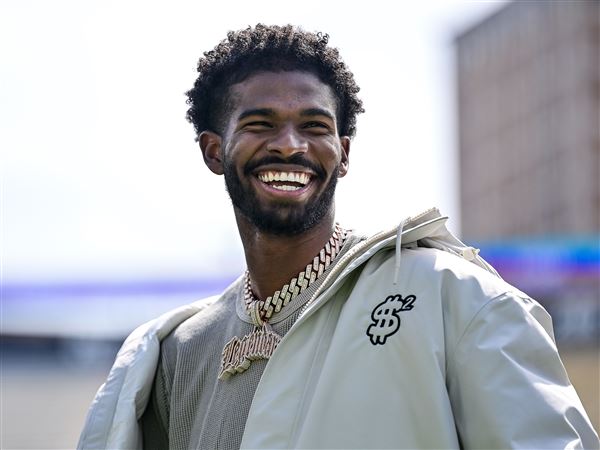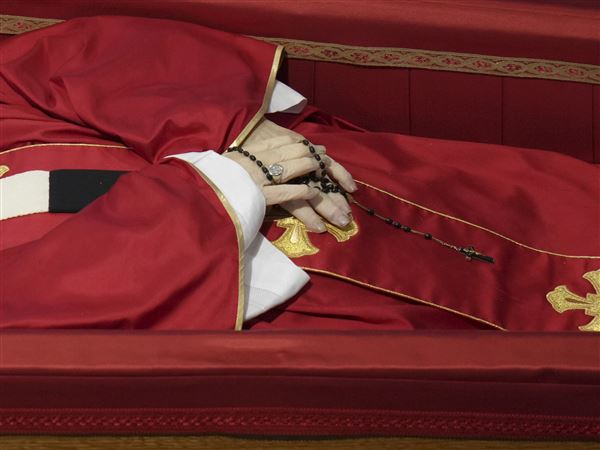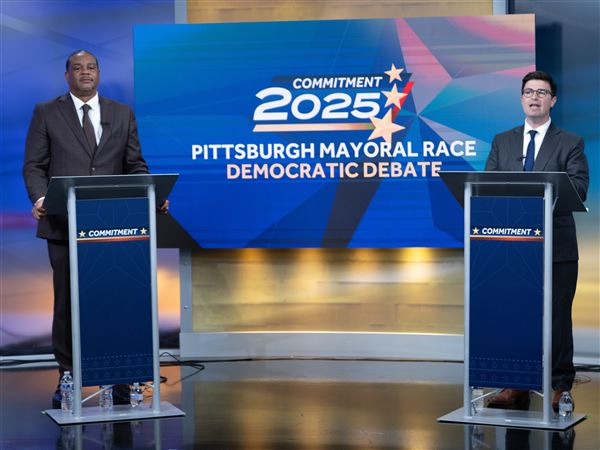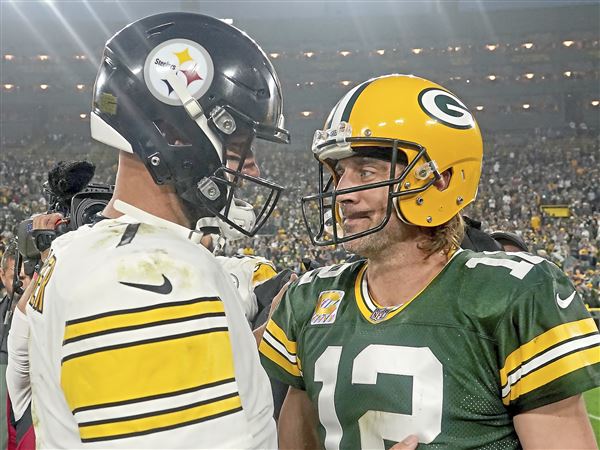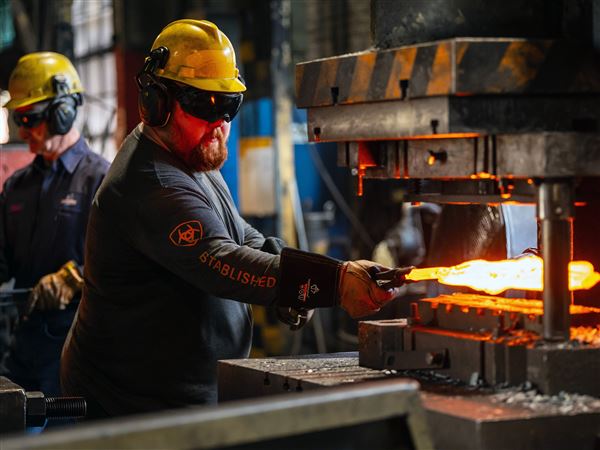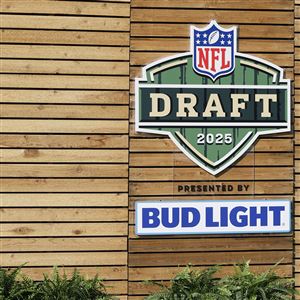He supplied crucial cash to help Mario Lemieux buy the Penguins in 1999 and led the bargaining that won the franchise a new arena.
Yet, in the hours after the celebrating Penguins won the Stanley Cup in 2009, co-owner Ron Burkle, the California billionaire who rubs shoulders with presidents and celebrities, had to be coaxed aboard the team flight back to Pittsburgh.
"He doesn't want to impose," a team official said. "He had to be talked into it."
While most Pittsburghers might not be able to pick Mr. Burkle out of a lineup, he's well known in other places as a savvy investor who amassed a fortune buying and selling grocery chains; a big-time political donor who counted Bill Clinton as both friend and employee; a college dropout who hangs with the likes of rapper Sean "P. Diddy" Combs and actor Leonardo DiCaprio.
He owns a customized Boeing 757 that has flown Penguins, a president and a Pittsburgh mayor who came to regret it, and he has a swanky Beverly Hills mansion valued at $30 million and built by silent film star Harold Lloyd.
Mr. Burkle, 57, followed his dad, a grocery manager, into the business. He started as a box boy at a Stater Brothers grocery at age 13. He later enrolled at California State Polytechnic University, but did not graduate.
He wound up back at the grocery, where he worked his way into management and then got fired when he tried to buy the chain.
The setback didn't deter him. Before long, he was buying and selling regional groceries, cultivating relationships with the unions that represented his workers and developing a knack for shrewd investments.
By age 34, he had formed Yucaipa Companies, an investment firm. According to its website, the company -- named after a California town where Mr. Burkle once lived -- has completed mergers and acquisitions totaling more than $30 billion since 1986. It also has turned Mr. Burkle into a very rich man, with an estimated wealth of $3.2 billion, according to Forbes Magazine, which ranks him number 297 on its list of world billionaires.
With the fortune has come attention, most of it unwanted. At times the subject of salacious gossip, Mr. Burkle fanatically tries to guard his privacy.
He rarely grants interviews, so much so that when he agreed to talk to BusinessWeek magazine earlier this year, it became big news. He would not grant an interview for this story. Most team officials would not speak on the record about him. He wouldn't even take the stage with other dignitaries three years ago to announce the deal between the Penguins and state and local leaders to build the new arena.
Yet Mr. Burkle has launched a series of business maneuvers that seem to belie his zeal for privacy, including a fight to gain more influence in the Barnes & Noble bookstore chain. He created a splash in Pittsburgh earlier this year when news broke that he and Penguins co-owner Mr. Lemieux had made an unsolicited offer to buy the Pirates.
Why the sudden break into the spotlight?
"I think it's more the fact that he's elephant hunting than publicity hunting," said Lloyd Greif, a Los Angeles investment banker who has known Mr. Burkle for years.
In Pittsburgh, Mr. Burkle has preferred to play in the shadows. Perhaps his only brush with controversy came in 2007 when Mayor Luke Ravenstahl faced criticism for accepting a free ride to New York on Mr. Burkle's private jet hours after city, county and state officials announced the deal with the Penguins to build the new arena. The mayor later reimbursed him.
Although a majority owner in the Penguins, he's content (or wise enough) to leave the public spotlight to Mr. Lemieux, the hockey icon who may be the city's most popular sports figure.
But he has made an imprint.
In his years of involvement, the Penguins have risen from the depths of bankruptcy to the height of a Stanley Cup championship; came close to being sold to the co-CEO of the company that makes BlackBerry smart phones; secured a new arena; and soared in value.
Insiders say Mr. Burkle's $20 million cash investment in the team was the clincher that enabled Mr. Lemieux to rescue the Penguins from bankruptcy in 1999.
"Without Burkle, there would be no Penguins," said Tom Reich, the agent for Mr. Lemieux who along with his son, David, approached Mr. Burkle about investing in the team.
Doug Campbell, Mr. Lemieux's attorney at the time, said the cash investment "established credibility for our group" with NHL Commissioner Gary Bettman. Until then, he said, Mr. Bettman was "dismissive" of Mr. Lemieux's effort.
Mr. Burkle did not know much about hockey, but he did know of Mr. Lemieux and his effort to buy the team, Mr. Reich said. At its core, he termed Mr. Burkle's interest in the Penguins as more philanthropic than anything else.
"I think at the time his biggest intent was helping Mario," added John Brabender, who served as Mr. Lemieux's spokesman during the bankruptcy proceedings.
Still, the investment fits right in with a business strategy that has served Mr. Burkle well over the years: Buy entities that are under-performing, make improvements and turn a profit.
"If he sees an undervalued asset, he writes a check. If he sees an ability ... to fix things that are broken, all the better," Mr. Greif said.
The investment has worked out nicely for Mr. Burkle.
The Penguins have jumped in value from an estimated $110 million during the bankruptcy to $222 million, according to Forbes. They are rated by the magazine as the fastest growing team brand in the NHL and one of the fastest growing in all sports.
After nearly dealing the team to Canadian billionaire Jim Balsillie, co-CEO of BlackBerry maker Research In Motion, in 2006, Mr. Burkle and Mr. Lemieux are no longer interested in selling.
Mr. Burkle also played a pivotal role in the bargaining that led to the arena deal that kept the team in Pittsburgh. He became heavily involved after negotiations reached an impasse and the Penguins flirted with a move to Kansas City.
By the end of the talks, Mr. Burkle was doing most of the bargaining and was "totally in charge," said Gov. Ed Rendell, who led the team of negotiators for the state, county and city.
While Mr. Lemieux and others assisted, "It was clear that Ron was driving the train, making the decisions," the governor said.
"He's a hard bargainer. He's very intense. He's very passionate about everything he does. In the end, he's a good business person. He understands the political considerations as well," Mr. Rendell said.
The Penguins cut a good deal for themselves. The bulk of the funding for the $321 million Consol Energy Center -- $15 million a year over 30 years -- comes from state and local gambling revenues. The Penguins pitch in a little more than $4 million a year. They also got potentially lucrative development rights to an adjacent 28 acres of land, including the Mellon Arena site.
In a statement, Mr. Lemieux said Mr. Burkle has been a superb line mate.
"Ron has been invaluable as both a partner and a friend since our group bought the team in 1999. We wouldn't have been able to come out of bankruptcy without him, let alone win a Stanley Cup or open a new arena," Mr. Lemieux said.
No one will mistake Mr. Burkle for Mt. Lebanon native Mark Cuban, the billionaire Dallas Mavericks owner who sits behind the bench at games and is known for his outspoken views.
Mr. Burkle is no regular at Mellon Arena. He catches a few games here each season and some in New York when he is there on business.
But he tries to get to as many playoff games as possible or at least watch them. During the 2009 Washington Capitals series, Penguins officials scrambled to get a live feed to South Korea where Mr. Burkle was on business. He was at the arena Wednesday night when the Penguins lost to the Canadiens to end their season and playoff run.
He also attended every Stanley Cup finals game last year. In a rare public display, he even hoisted the Stanley Cup on the Detroit ice but only after all of the players, coaches and Mr. Lemieux did so first. He also took part in the victory parade, sharing the experience with his teenage son, Andrew.
Mr. Burkle flew Evgeni Malkin, Max Talbot and team officials to an NHL awards ceremony in Las Vegas last year in his jet. He also entertained his players at his estate this past season, leaving more than a few wide-eyed.
"I wouldn't want to say it was better than the White House, but it was pretty darned close," center Jordan Staal said at the time.
Mr. Burkle routinely stays in touch with Mr. Lemieux and is involved in the team's major business decisions. He usually will attend quarterly board meetings or participate by phone. Despite financial risks, he urged team executives in 2008 to spend to the salary cap ahead of their own five-year plan, if it gave the franchise a shot at the Stanley Cup.
He also was responsible for bringing David Morehouse, a former aide to Mr. Clinton, into the Penguins organization to spearhead the team's unsuccessful bid for the Pittsburgh casino license. Mr. Morehouse has since been promoted to team president and will become CEO when Ken Sawyer retires at the end of August.
Perhaps nothing Mr. Burkle has done in Pittsburgh made quite the impression his and Mr. Lemieux's offer to buy the Pirates did. The bid was said to be more than $25 million higher than the baseball team's estimated value.
Pirates owner Bob Nutting quickly rejected the idea, stating that no serious discussion of a sale took place. He did so again in a terse statement released Friday.
"There has never been a substantive offer for the team. I cannot be more clear when I say that the team has not been for sale, is not for sale and is not going to be sold," he said. "We are a much stronger organization now than we were when I assumed control in 2007 and the last thing the organization needs, or I will allow, is for us to lose sight of our goal of returning the Pirates to a championship organization on and off the field."
If nothing else, the offer endeared Mr. Burkle and Mr. Lemieux to legions of long-suffering fans who haven't had a winner in 17 years.
Mr. Burkle and Mr. Lemieux saw the purchase as an opportunity to create a regional sports network and other synergies, such as promoting concerts at two state-of-the-art venues, PNC Park and Consol Energy Center. Mr. Greif also saw Mr. Burkle's trusted business strategy at work.
"Ron obviously sees a similar opportunity to turn it around and make it a more profitable franchise and generate a decent business return," he said.
The interest by the partners in the baseball team has since waned, in part because the Pirates recently signed an extension with FSN Pittsburgh regarding television rights.
However, that bid punctuated a series of bold business gambits that have kept Mr. Burkle in the news.
His nasty fight with Barnes & Noble took another turn recently, when he sued the bookseller, claiming its shareholder plan favored the family of the founder and chairman, which holds 29 percent of the company's stock.
Mr. Burkle has accumulated about 19 percent of Barnes & Noble stock, but has been rebuffed in his bid to increase that to 37 percent. In November, the bookseller's board adopted a shareholder-rights plan, known as a poison pill, to prevent him from gaining more control.
"If it goes to a proxy fight, it could get nasty, and it could be interesting to watch," said Ben Silverman, director of research for InsiderScore.com, an investment research firm.
He believes the odds work against Mr. Burkle.
"He's basically squaring off against [chairman Leonard] Riggio and someone who controls a third of the company. It's a difficult scenario there," he said.
Mr. Greif won't bet against Mr. Burkle.
"He's a bulldog. Once he latches on, he doesn't let go. If someone is going to cry uncle, it's not going to be Ron Burkle. It's not in his genetic makeup," he said.
Mr. Burkle also is involved in an effort to buy Miramax Films from Disney, reportedly putting more than $600 million into the deal. He is teaming with brothers Bob and Harvey Weinstein, who founded the studio that produced the Oscar-winning "The English Patient."
At the urging of Mr. Rendell, former chairman of the Democratic National Committee, Mr. Burkle last month briefly got involved with a group of Philadelphia investors seeking to buy the city's two major newspapers, the Inquirer and Daily News. He withdrew when it was decided his participation was no longer needed.
Over the years, Mr. Burkle has contributed millions of dollars to the Democratic Party and raised tens of millions more. He may be best known for his relationship with former President Clinton, who has stayed numerous times at his mansion and flown in his jet.
Mr. Burkle not only raised money for Mr. Clinton and his wife Hillary during her presidential campaign, but also employed the former president for five years after he left office. According to BusinessWeek, Mr. Clinton earned at least $15 million through the arrangement.
While the friendship gave Mr. Burkle access at the highest levels, it also subjected him to scrutiny and criticism. Lately, the Internet has been abuzz with talk that the relationship is on the rocks, though Mr. Rendell doesn't think that's the case.
Locally, Mr. Burkle's involvement in politics has not been nearly as hefty, with one exception -- a $100,000 donation in December to Allegheny County Executive Dan Onorato's campaign for governor. Mr. Onorato, a Democrat, was involved in the arena negotiations three years ago. He did not respond to a request for an interview.
For now, in Pittsburgh at least, Mr. Burkle's chief focus appears to be the Penguins.
Not one to micromanage, he has given team officials just two mandates for the new arena opening in August: comfortable seating for fans and the best locker room in the NHL for the players.
"He has great respect among the players," Penguins captain Sidney Crosby said in a statement. "He always wants us to be treated first class, and that means a lot."
First Published: May 16, 2010, 8:00 a.m.
